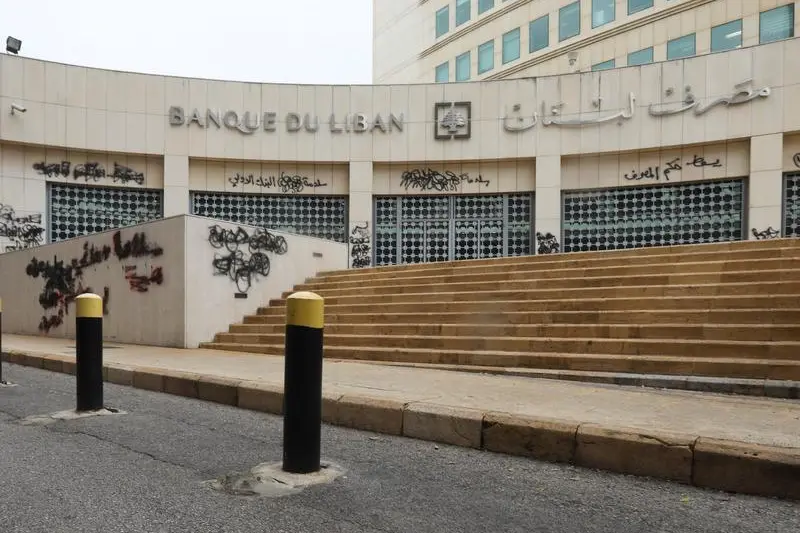PHOTO
BEIRUT - Lebanon's central bank is studying lowering the threshold for obligatory foreign exchange reserves in order to continue subsiding key imports next year, as critically low reserves dwindle, an official source familiar with the matter said on Wednesday.
Central Bank Governor Riad Salameh met relevant ministers in Lebanon's caretaker government on Tuesday and one option under discussion is lowering the required reserve ratio from 15% to around 12% or 10%, the source told Reuters.
Foreign exchange reserves currently stand at some $17.9 billion with only $800 million left for subsidising fuel, wheat and medicine imports until the end of 2020, the source added.
Salameh did not immediately respond to a Reuters' request for comment on the discussions or on reserves. On Aug. 27 he put foreign currency reserves at $19.5 billion and obligatory reserves at $17.5 billion.
"Starting 2021 you need a plan," the source said. "There will be a series of meetings. One option is lowering the reserves ratio from 15% to 12% or 10%, along with rationalising subsidies spending. There is no decision yet."
Crushed by a mountain of debt, Lebanon is facing its worst crisis since its 1975-1990 civil war, ravaging the currency and sending prices soaring. There has been no progress in talks to form a new cabinet after the current government resigned in August following a massive explosion in the port of Beirut.
Many Lebanese have been plunged into poverty and are increasingly reliant on subsidised food. Reducing subsidies risks adding to public anger in a nation that was convulsed by protests as the financial crisis came to a head in October 2019.
As dollar inflows have dried up, the central bank has provided foreign currency for fuel, wheat and medicine imports at an official peg of 1,507.5 Lebanese pounds to the dollar, well below the street rate that was above 8,000 on Wednesday.
The source said some items had already been removed from the subsidised food basket. The meetings would discuss the possibility of raising fuel prices, the source said, adding that imports of medical equipment and vital medicine would continue.
Lowering the threshold for obligatory foreign exchange reserves could also be a sensitive issue, as it will draw on hard currency deposits parked by local lenders at the bank.
Domestic banks have frozen savers out of their dollar deposits and largely blocked transfers abroad under informal capital controls since late last year due to crisis that prompted a sovereign debt default.
(Editing by William Maclean) ((ghaida.ghantous@thomsonreuters.com;))





















